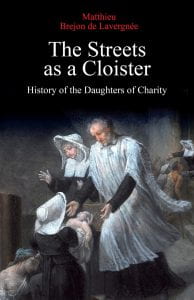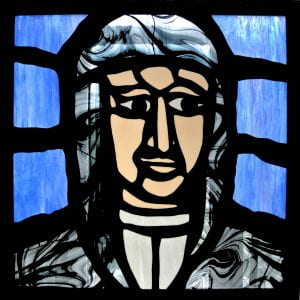
November 2-6
Between the pandemic, politics, and quickly approaching quarter finals, we’re coming up on a particularly charged week. Mission & Ministry is providing a variety of ways to be together to listen, to process or just breathe.
Below is a line-up of services and programs offered to faculty, staff and students.
FACULTY & STAFF
Individual Pastoral Support for Faculty and Staff
Mission and Ministry’s Faculty and Staff Engagement Team (FASE) is available to provide a listening ear and pastoral support for individual faculty and staff during election week and beyond. Appointments can be scheduled using the following links:
Abdul-Malik Ryan: https://ChaplainAbuNoor.as.me/
Mark Laboe: https://MarkLaboe.as.me/
Mike Van Dorpe: https://MikeVanDorpe.as.me/
Siobhan O’Donoghue: https://Siobhan.as.me/
Tom Judge by email: tjudge@depaul.edu
General FASE email address: FASE@depaul.edu
Midweek LIVE Prayer for the DePaul Community
Wednesday, November 4th, 9:05 am
Join colleagues from the DePaul community for ten minutes of guided interfaith-friendly prayer and reflection on Wednesday morning at 9:05 am. This time will include a brief opening prayer, a short spiritual reading, and quiet space for reflection. The prayer will be held on Facebook LIVE at 9:05 AM and end promptly at 9:15 am, with the video available afterwards for those who cannot be present at that time. Participate in the Prayer by following this link: https://www.facebook.com/DePaulDMM/live/
Connection Cafés: Processing the Elections with DePaul Colleagues
Wednesday, November 4th and Thursday, November 5th
This election season has added a layer of stress and uncertainty for many of us. The Division of Mission and Ministry invites you to participate in a Connection Café: Processing the Election with DePaul Colleagues. These Connection Cafés are intended to create a space for DePaul faculty and staff to process what they may be feeling and thinking after the November 3rd election day in what may be a prolonged period of uncertainty. Join with DePaul colleagues to share your own experiences and hear those of others, guided by elements of a peace circle process and facilitated by Mission and Ministry staff.
Registration Required. Zoom link will be sent after registration.
Wednesday, November 4th
12:00 – 1:00 pm
Register Here
Thursday, November 5th
3:30-4:30 pm
Register Here
STUDENTS
CATHOLIC CAMPUS MINISTRY
Pastoral Care Hours
CCM’s Pastoral Care team is available Monday, November 2nd – Friday, December 11.
See schedule below. Connect via Zoom link: https://depaul.zoom.us/j/91690617053
Monday: 10-11 am, 12-1 pm, 2-3 pm, 6-7 pm
Tuesday: 9-10 am, 10-11 am, 12-1 pm, 3-4 pm
Wednesday: 9-11 am, 1-2 pm, 4-5 pm
Thursday: 12-4 pm
Friday: 9:30-11:30 am, 1-3 pm
Circle of Lament
Thursday, November 5, 4:30-5:30 pm
There are times in life when we are left with nothing but sorrow and lament, and for so many reasons, that seems to be the place where many find themselves in these times. Join staff from Catholic Campus Ministry and Religious Diversity and Pastoral Care teams in quiet reflection around the sorrows of today and looking toward hope for tomorrow. https://depaul.zoom.us/j/94351635099
VINCENTIAN SERVICE & FORMATION (VSF)
Office Hours
November 4th, 10:00 am—3:00 pm
Come as you are. Here to listen.
VSF staff will be available through Zoom after election day for those who would like to be in community: http://bit.ly/vsfoffice
Ozanam Café
Thursday, November 5th, 4:00pm to 5:00 pm
Join the Vincentians in Action (VIA) and Meet Me at the Mission (MMATM) communities for coffee, community, and conversations about social justice. This quarter, we will be exploring activism in the Vincentian way. Come build your activism toolbox and learn more about the Vincentian approach to systemic change. Join us on Zoom: http://bit.ly/theozcafe
Community Peacemakers – Self and Collective Wellness Circle
November 6th, 11am-12pm
Join VIA’s Community Peacemakers for a talking circle about self-care and collective care, as we navigate being students in these COVID-19 times. Come learn about peace circles, have a space for reflection, and be in community with others! Space Limited – RSVP on DeHub: http://dehub.cglink.me/r9549
RELIGIOUS DIVERSITY & PASTORAL CARE
Pastoral Care
Follow RDPC Facebook & Instagram (@RDPCDePaul) for daily words of encouragement. In addition, the RDPC team is available to all students needing comfort or a listening ear.
Reach out directly to a member of our team:
Pastor Diane Dardón | DDARDON@depaul.edu
Protestant Chaplain/Director-Religious Diversity & Pastoral Care
Imam Abdul-Malik Ryan | MRYAN42@depaul.edu
Muslim Chaplain/Assistant Director-Religious Diversity & Pastoral Care
Minister Jene Colvin | JCOLVIN3@depaul.edu
Protestant and Interfaith Minister
Matthew Charnay | MCHARNAY@depaul.edu
Jewish Life and Interfaith Coordinator
Post-election Open Spaces on Zoom:
Tuesday, November 3rd
2:30-4:30 Mat Charnay and DePaul Jewish Life community gathering
https://depaul.zoom.us/j/93080940244.
Wednesday, November 4th
9:00-11:30 am Pastor Diane is available for conversation, prayer, and listening
https://depaul.zoom.us/j/350817578.
1:30-3:30 pm Imam Abdul-Malik Ryan is available for conversation, prayer, and listening
https://depaul.zoom.us/j/9274314897.
2:30-4:30 pm Mat Charnay and DePaul Jewish Life community gathering
https://depaul.zoom.us/j/93080940244.
Thursday, Nov. 5th
9:00-11:00 am
Imam Abdul-Malik Ryan is available for conversation, prayer, and listening
https://depaul.zoom.us/j/9274314897.
3:30-7:00 pm
Virtual UMMA Room/Muslim Life Center open for conversation and community
https://tinyurl/UMMAVirtualRoom.
 This episode is an interview with Rev. Craig B. Mousin, an Adjunct Faculty member at DePaul University’s College of Law and The Grace School of Applied Diplomacy. On November 20, 2020, the designated World Children’s Day, Rev. Mousin discusses what can be done in response to the thousands of children detained, deported, and excluded from applying for remedies permitted under the Refugee Act of 1980. In addition, he invokes the ten immediate priorities recommended by a coalition of several national organizations including among others, The Young Center for Immigrant Children’s Rights and the American Academy of Pediatricians to correct United States immigration and refugee law and policy regarding children.
This episode is an interview with Rev. Craig B. Mousin, an Adjunct Faculty member at DePaul University’s College of Law and The Grace School of Applied Diplomacy. On November 20, 2020, the designated World Children’s Day, Rev. Mousin discusses what can be done in response to the thousands of children detained, deported, and excluded from applying for remedies permitted under the Refugee Act of 1980. In addition, he invokes the ten immediate priorities recommended by a coalition of several national organizations including among others, The Young Center for Immigrant Children’s Rights and the American Academy of Pediatricians to correct United States immigration and refugee law and policy regarding children.







